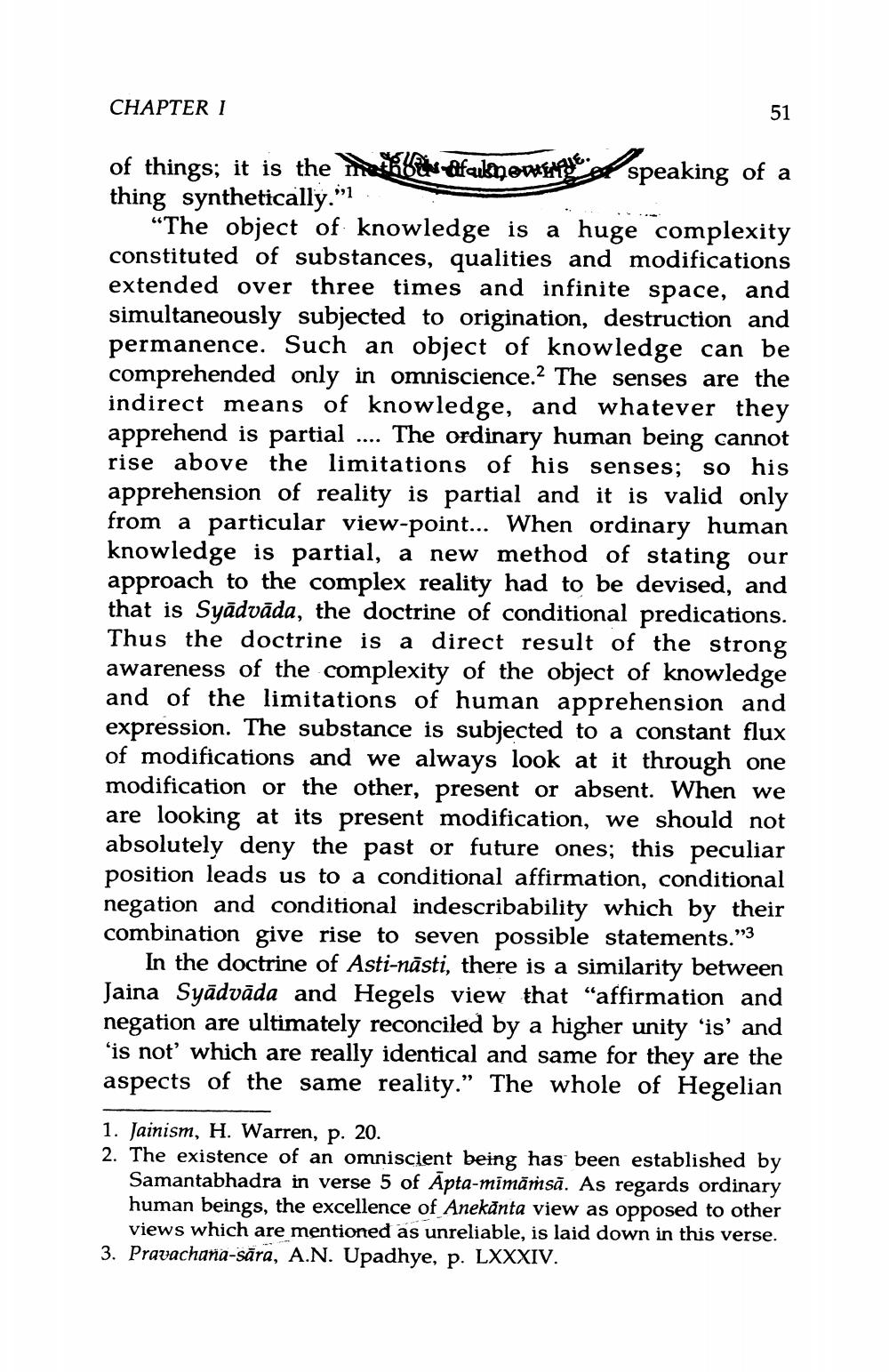________________
CHAPTER I
of things; it is the themes ofakmentitled speaking of a thing synthetically."1.
"The object of knowledge is a huge complexity constituted of substances, qualities and modifications extended over three times and infinite space, and simultaneously subjected to origination, destruction and permanence. Such an object of knowledge can be comprehended only in omniscience.2 The senses are the indirect means of knowledge, and whatever they apprehend is partial .... The ordinary human being cannot rise above the limitations of his senses; so his apprehension of reality is partial and it is valid only from a particular view-point... When ordinary human knowledge is partial, a new method of stating our approach to the complex reality had to be devised, and that is Syādvāda, the doctrine of conditional predications. Thus the doctrine is a direct result of the strong awareness of the complexity of the object of knowledge and of the limitations of human apprehension and expression. The substance is subjected to a constant flux of modifications and we always look at it through one modification or the other, present or absent. When we are looking at its present modification, we should not absolutely deny the past or future ones; this peculiar position leads us to a conditional affirmation, conditional negation and conditional indescribability which by their combination give rise to seven possible statements.”3
In the doctrine of Asti-năsti, there is a similarity between Jaina Syādvāda and Hegels view that “affirmation and negation are ultimately reconciled by a higher unity 'is' and ‘is not which are really identical and same for they are the aspects of the same reality.” The whole of Hegelian
1. Jainism, H. Warren, p. 20. 2. The existence of an omniscient being has been established by
Samantabhadra in verse 5 of Apta-mīmāṁsā. As regards ordinary human beings, the excellence of Anekānta view as opposed to other
views which are mentioned as unreliable, is laid down in this verse. 3. Pravachana-sāra, A.N. Upadhye, p. LXXXIV.




